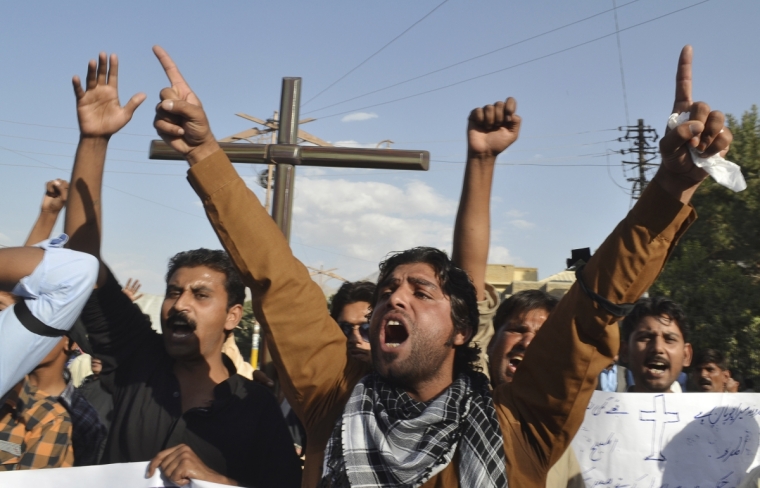THREAT: ISIS to launch offensive against Christians in Pakistan

ISLAMABAD, Pakistan (Christian Examiner) – The Islamic State – ISIS – is planning a major offensive against Pakistan's small population of Christians and Christian institutions, including churches, schools and hospitals, the Gatestone Institute has reported.
According to the think tank, the Pakistani government and military have already warned Christians that attacks may come in the near future.
While the prospect of terror is grim, the Institute said the warning from the military's leading generals suggests "an extraordinary, positive development in the military's relationship with minorities in general and with Christians in particular. Their warming relationship appears to be a calculated political move to complement the military leadership's ongoing offensive against the terrorist havens in the northwestern corner of the country."
According to the warnings, the Institute said, attacks within Pakistan will be carried out by splinter groups that formerly belonged to the Pakistani Taliban.
"According to sources in the area, these splinter groups have already forged an alliance with the more extremist and brutal Islamic State (ISIS) cells that have already entered Pakistan," the Institute said in a statement.
Late in 2014, the Daily Mail carried a story which claimed Pakistan's Taliban would remain their own unit, but would begin serving as the representatives of ISIS in the country of Pakistan. The report also said the group's lead, Hafiz Saeed Khan, already pledged a loyalty oath to ISIS leader Abu Bakr al-Baghdadi.
Another Taliban leader, Ahmed Marwat (a.k.a. Farhad Marwat), leader of a splinter group called Jundullah, or "soldiers of Allah," said the Islamists would begin by attacking "ka'fir Shi'ites, Ismailis and Christians." Ka'fir is the Arabic word for "infidel."
Shi'ites are a different branch of Islam which arose out of a leadership dispute following Muhammad's death in the seventh century. Ismailis are sect of Shi'ite Islam which arose in Syria in the 10th century. ISIS is composed solely of Sunni Muslims.
The Jundullah also reportedly have a foothold in northeastern Iran.
According to the Gladestone Institute, Marwat met with representatives from ISIS in November 2014. That same month, he claimed it was his group who attacked aid workers in Quetta, Pakistan, and labeled them "Yahood o Nasara," or "Jews and Christians."
The Jundullah group, reputedly the Islamic State's most potent ally in Pakistan, also claimed responsibility for twin-suicide bombings at the All Saints Church in Peshawar on September 22, 2013. That attacked killed 127 and wounded more than 250.
With ISIS's track record of attacking Christian interests – and those it perceives as Christian – the government is taking the threat seriously. The military has reportedly purged the army of those suspected of being ideologically aligned with the militants and is apparently planning a major offensive against the terror groups along the border with Afghanistan.
The website, Christians in Pakistan, a news site dedicated to serving as the voice of the minority group, recently said the Pakistani government is weighing whether it should join the U.S.-led coalition against ISIS.
The Gatestone Institute is a non-partisan, non-profit international policy council with connections to intelligence services and governments worldwide. The group focuses on issues related to democracy and the rule of law, human rights, and threats to liberty, individual sovereignty and free speech.